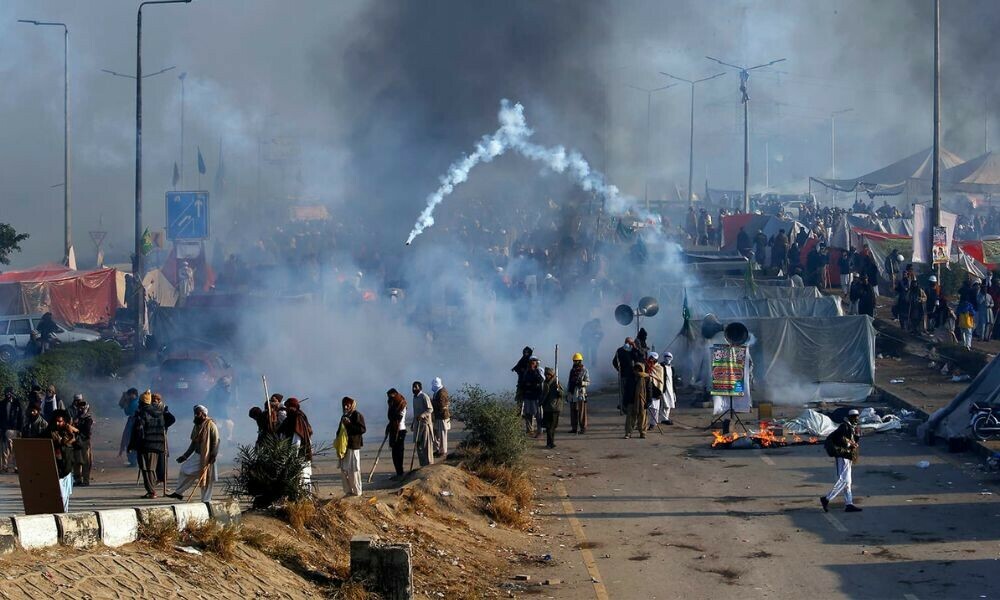- Web Desk
- Feb 19, 2026
Final report on Faizabad dharna submitted to Cabinet Division
-

- Web Desk
- Mar 14, 2024

ISLAMABAD: The Inquiry Commission investigating the Faizabad dharna (sit-in) has submitted its final report to the cabinet division, according to sources.
The report was submitted by Commission Chairman Akhtar Ali Shah to the cabinet division, sources added.
According to sources, the commission in its finding has said that the measures during the sit-in were taken by the than prime minister through the law minister on the advise of the Punjab chief minister
The commission also scrutinized over 5200 pages of evidence related to the Faizabad sit-in, according to sources.
Reports from ISI, police, PEMRA, and PTI, FIA, CTD, government and special branches have also been included in the commission’s report, sources revealed.
Faizabad dharna case: Faiz Hameed denies conspiracy against the govt
The commission during its investigation also recorded and documented statements from 28 key individuals including, statements from retired military and civilian officers.
The commission has also identified those responsible for mishandling the Faizabad sit-in, sources revealed.
The Ministry of Interior will present the commission’s report to the Supreme Court, sources concluded.
FAIZABAD DHARNA CASE
In 2017, TLP staged a 20-day sit-in at the Faizabad interchange which is a major intersection between Rawalpindi and Islamabad. Pakistan Muslim League – Nawaz (PML-N) was in power.
The sit-in was sparked by alleged changes to the wording of the oath taken by lawmakers which the TLP claimed weakened the affirmation that the Holy Prophet (PBUH) is the last messenger of Allah.
The protesters demanded the resignation of the then-law minister Zahid Hamid.
The sit-in caused significant disruption to daily life in the twin cities with protesters blocking roads and preventing people from going to work or school.
There were also reports of violence and clashes between protesters and police.
On November 21, 2017, the apex court initiated suo motu proceedings.
On November 22, 2018, a two-judge bench comprising Justice Qazi Faez Isa and Justice Mushir Alam reserved their ruling. The verdict was finally unveiled on February 6, 2019.




